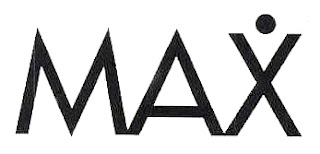TTAB Affirms 2(d) Refusal of "MaxCL" for Life Insurance, Finds Confusing Similarity to "MAX" for Property/Casualty Insurance
Oh boy! What could be more exciting than a case involving insurance company marks? In this barnburner, the Board affirmed a Section 2(d) refusal of MaxCL for "fraternal services, namely, life insurance underwriting" in view of the registered mark MAX in standard character (and design form), for "underwriting of property and casualty insurance." Third-party registration and Internet evidence established the relatedness of the services, and the Board found the marks to be similar in appearance, sound, meaning and commercial impression. Doesn't this one come awfully close to the WYHA? line. In re Modern Woodmen of America, Serial No. 77203020 (July 16, 2012) [not precedential].

The marks: Applicant feebly argued that the "CL" suffix would distinguish its mark from the cited marks, but the Board concluded that since "CL" has no particular meaning, Applicant's mark would likely be viewed merely as a variant of the cited MAX mark.
Applicant pointed to a TESS search listing of 100 of 402 records for marks containing the word "max" in class 36. The Examining Attorney did not object to the lack of copies of the actual registrations, but the Board found the list non-probative anyway, since it failed to provide crucial information - like the nature of the services.
And so the Board found the marks to be similar in appearance, sound, meaning and commercial impression.
The services: Examining Attorney Cory Boone submitted third-party registration and website evidence demonstrating that the same entities underwrite all three types of insurance involved here: life, property, and casualty. Under Albert Trostel, third party registrations based on use in commerce have probative value and serve to suggest that the involved services may emanate from a single source under a single mark. In short, consumers are likely to believe that the services emanate from the same source.
Applicant's services are limited to those provided by a fraternal society (Modern Woodmen of America), leading Applicant to argue that confusion is not likely because only its members may buy its insurance. The Board, however, pointed out that registrant's services are not restricted as to trade channels and are presumably sold to all member of the general consuming public, including Applicant's members.
Applicant claimed that the purchase of insurance is not done on impulse but as part of a careful decision. Although Applicant provided no evidence to support that argument, the Board agreed that purchasers exercise care when purchasing insurance. Thus this du Pont factor slightly favored Applicant.
Prior registration: Finally, Applicant pointed to its ownership of a 2009 registration for "MaxCL Pro" for life insurance services [PRO disclaimed], arguing that consumers would associate MaxCL with the registered MaxCL Pro mark. The Board noted the lack of evidence of such an association, and further pointed out that "there is nothing that explains why customers would only associate the MaxCL mark with MaxCL PRO, and not also with the cited MAX mark." Moreover, the Board is not bound by the prior decision of an Examining Attorneys in allowing the MaxCL Pro mark for registration, but rather must decide each case on the record before it.
Noting that a lesser degree of similarity between the marks is necessary when the involved services are "similar in kind and/or closely related," and resolving any doubt in favor of the prior registrant, the Board affirmed the refusal.
TTABlog comment: I don't like the statement that when the services are "similar in kind," a lesser degree of similarity between the marks is needed for a likelihood of confusion finding. Isn't "similar in kind" a rather low threshold?
Text Copyright John L. Welch 2012.




0 Comments:
Post a Comment
<< Home